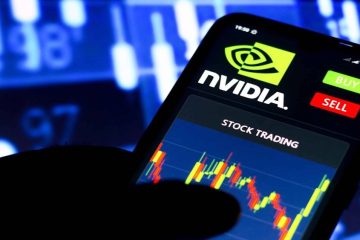Why Some Investors Are Refusing to Buy Walmart Stock

Since the school shooting in Parkland, Fla. killed 17 in February, gun retailers including Walmart, Kroger, and Dick’s Sporting Goods have ramped up restrictions on firearm sales.
Amid a debate about the weapons regulations, Dick’s ended sales of assault-style weapons, while the country’s largest retailer, Walmart, raised the minimum age of such purchases to 21.
Yet, firms like Walmart—better known for its back-to-school supplies and low prices—may still be keeping a growing class of investors at bay with its reputation as the country’s largest gun retailer: funds that choose based on environmental, social, and governance principles (ESG).
Parnassus Investment, which makes its final investment decisions based on ESG principals, does not “invest in companies that derive a significant amount of revenue from guns, or companies that break the spirit (of our ESG) principals,” said Iyassu Essayas, an ESG analyst for the firm. “That’s one of the reasons we strayed away from Walmart.”
Parnassus decides on investments by first determining whether a company’s valuation and financials pass the test. Then, the candidate goes through an ESG filter. Walmart has yet to show up in the firm’s portfolio so far, says Essayas, even with its $ 485.9 billion in revenue. And though it’s hard to say for certain whether Walmart is indeed the largest firearms seller—the company does not offer a break down of ammunition and gun sales—its “gun king” moniker is a hard sell in round two.
“This notion of ESG has many, many factors. But the fact that Walmart is the biggest [U.S. gun seller] would probably cause us to exclude it because it would be so bad for the brand, and for our shareholders to own it—so we would exclude it,” said Parnassus’ Director of Sales and Marketing, Joe Sinha.
That comes as an increasing number of mutual and index funds, which have largely avoided interfering in the operations of their holdings despite often ranking among companies’ largest holders, appear to be moving out of the sidelines.
“We will be engaging with weapons manufacturers and distributors to seek greater transparency from them on the ways that they will support the safe and responsible use of their products,” State Street, Walmart’s second largest institutional shareholder, said in a statement when asked whether they were in contact with the retailer. “And we will also seek to ensure that any shareholder resources used to influence legislation and regulations or fund other advocacy efforts is consistent with the company’s public views.”
BlackRock, also among Walmart’s largest holders, released a similar statement, saying they would talk with weapons manufacturers and distributors.
“We are working with clients who want to exclude from their portfolios weapons manufacturers or other companies that don’t align with their values,” the company said in a statement. “We currently have more than $ 200 billion in assets under management for clients in these types of portfolios.”
Such investing titans do have a logic behind this historical non-interference. Companies such as Walmart are included in indexes because such products seek to model the larger economy or an industry. So unlike in the case of activist investors, index funds managers don’t generally pick their holdings.
As another Walmart holder explains, “We have a longstanding policy where we don’t comment on individual securities. Vanguard’s stake in any company is due to our need to meet our funds’ broader investment objectives. For example, our Vanguard S&P 500 Index Fund’s investment objective is to replicate the S&P 500 Index, so the fund includes all, or substantially all, of its assets in the stocks that make up the index, holding each stock in approximately the same proportion as its weighting in the index.”
When asked about why the company sells firearms, Walmart, which ended the sale of assault-type weapons like the AR-15 used in Las Vegas back in 2015, says its decision is due to consumer demand.
“We refocused on hunting and sport, driven by customer demand,” said Randy Hargrove, a spokesperson for Walmart.
In conversation with its investors, meanwhile, Walmart has pointed to its self-imposed restrictions on firearm sales.
“Our approach is to highlight how we take our responsibility seriously,” Hargrove said, adding that the company cannot comment on specific chats with its holders. “What we do greatly exceeds what is required by law.”
Aside from increased age restrictions, Walmart also films transactions, and specially trains those behind the guns desk. The company also seeks to keep track of customers who might be buying for others that may not be eligible for owning firearms.
That comes as socially conscious investing remains a small, but growing, size of the pie. According to an October McKinsey study, ESG accounted for 26%, or about $ 23 trillion, of assets managed by institutional investors in Asia, Australia, Canada, Europe, New Zealand, and the U.S. in 2016.
Still, says the Urban Institute, increasing restrictions and even ending gun sales on the part of the retailers may not be enough when it comes to stopping crime stemming from firearms. Other, less restrictive retailers fill in the void Walmart leaves behind as it increases restrictions or should it decide to stop selling guns.
“I don’t think any one change is going to really make a dent in the gun violence problem in the U.S.,” said Nancy La Vigne, vice president and director of the Justice Policy Center at the Urban Institute. “It’s going to take a combination of efforts, including restricting high power firearms, legislative solutions on people who are misusing firearms, and working in high gun violence communities.”










